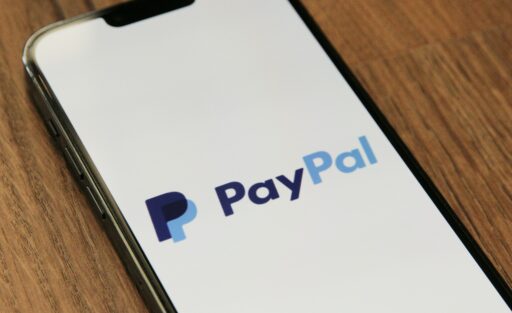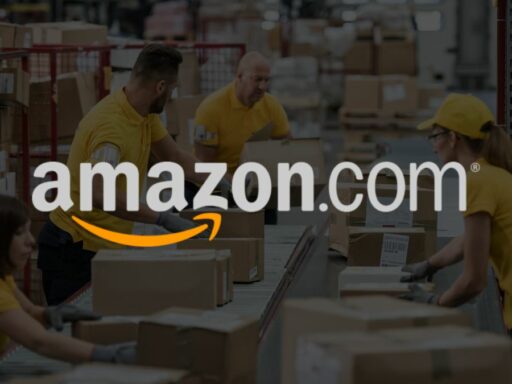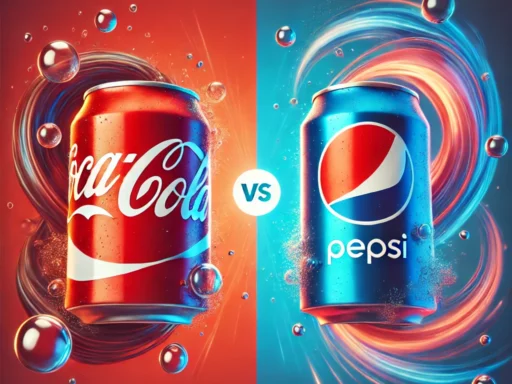PayPal, a global leader in digital payments, is increasingly focusing on sustainability as a key component of its corporate strategy. The company is leveraging its position in the digital economy to help promote a more sustainable and inclusive global financial ecosystem. Through its sustainability initiatives, PayPal is addressing climate change, promoting diversity and inclusion, supporting community development, and ensuring responsible sourcing across its operations.
In its most recent sustainability report, PayPal outlines its efforts to achieve carbon neutrality, support environmental sustainability, and make meaningful progress toward advancing social good. The company’s sustainability strategy is integrated into its business model, focusing on reducing environmental impact, supporting financial inclusion, and promoting diversity and equity in its operations and workforce.
Sources:
https://www.paypal.com/us/webapps/mpp/paypal-sustainability
https://www.paypal.com/us/webapps/mpp/about-us
Sustainability Strategy and Goals
PayPal’s sustainability strategy focuses on reducing its environmental footprint, improving financial inclusion, and advancing social equity. The company aims to drive impact in four key areas: environmental sustainability, responsible sourcing, employee diversity and inclusion, and community development. Below is a detailed overview of PayPal’s sustainability initiatives:
Net Zero and Carbon Emissions
PayPal is committed to reducing its carbon emissions and becoming a climate-positive company. It has set clear goals to reach carbon neutrality and improve environmental sustainability across its operations.
- Net-Zero Emissions: PayPal has committed to achieving net-zero carbon emissions across its global operations by 2040.
- Carbon Footprint Reduction: In 2022, PayPal reduced its carbon emissions by 7% from the previous year and is working to reduce emissions through a combination of renewable energy sourcing and energy-efficient operations.
- Renewable Energy: PayPal sources 100% of its energy from renewable sources, including wind and solar, in its global operations.
- Scope 3 Emissions: The company is working to manage and reduce its Scope 3 emissions, which include those from its supply chain and business operations.
Sources: https://www.paypal.com/us/webapps/mpp/paypal-sustainability
Renewable Energy and Clean Power
PayPal has been investing heavily in renewable energy to power its global operations. The company has made significant strides in reducing its dependence on fossil fuels and transitioning to cleaner energy sources.
- 100% Renewable Energy: PayPal achieved its goal of sourcing 100% renewable energy across its global operations in 2020.
- Energy-Efficient Data Centers: The company has transitioned to energy-efficient data centers, reducing its energy consumption while maintaining high performance and reliability.
- Partnerships for Clean Energy: PayPal collaborates with external partners to drive renewable energy use, including large-scale solar and wind projects to further reduce its carbon footprint.
Sources: https://www.paypal.com/us/webapps/mpp/paypal-sustainability
Circular Economy and Waste Management
As a technology-driven company, PayPal is focused on reducing waste across its operations and adopting circular economy principles. The company is committed to minimizing its environmental impact through waste reduction, reuse, and recycling.
- Electronic Waste Reduction: PayPal has implemented a global electronics recycling program that promotes the reuse and recycling of its IT hardware.
- Waste Diversion: The company is working to divert 90% of its non-hazardous waste from landfills by implementing efficient recycling systems in its offices and data centers.
- Product Lifecycle: PayPal encourages its partners and suppliers to integrate circularity into the design and lifecycle management of electronic devices and products used within its operations.
Sources: https://www.paypal.com/us/webapps/mpp/paypal-sustainability
Diversity, Equity, and Inclusion
PayPal is committed to fostering a diverse, inclusive, and equitable workplace. The company’s diversity, equity, and inclusion (DEI) programs focus on promoting gender equality, racial equity, and equal opportunities for employees across the globe.
- Workforce Diversity: PayPal has made significant progress in increasing diversity in its leadership roles, with over 40% of leadership positions held by women and underrepresented groups.
- Inclusive Hiring: The company is actively working to hire more people from diverse backgrounds, with a focus on underrepresented groups in the tech industry.
- Pay Equity: PayPal conducts annual pay equity audits to ensure equal pay for equal work, with a commitment to closing any gender or racial pay gaps within its workforce.
Sources: https://www.paypal.com/us/webapps/mpp/paypal-sustainability
Community and Social Impact
In addition to its environmental sustainability efforts, PayPal focuses on improving social outcomes by promoting financial inclusion, supporting underserved communities, and providing philanthropic support.
- Financial Inclusion: PayPal is committed to expanding access to financial services for underserved and marginalized communities. The company partners with NGOs and social enterprises to provide financial tools and services to those who lack access to traditional banking.
- Philanthropy: PayPal is dedicated to supporting charitable organizations, particularly those focused on improving economic mobility, education, and healthcare in underrepresented communities.
- Social Innovation: PayPal invests in social innovation programs that empower individuals and communities to thrive by using technology to solve societal challenges.
Sources: https://www.paypal.com/us/webapps/mpp/paypal-sustainability
Key Sustainability Innovations and Technologies
PayPal is investing in several innovations to improve its sustainability efforts, focusing on both reducing environmental impact and promoting social good. The company’s approach to sustainability is grounded in leveraging technology to drive positive outcomes for the environment, society, and its stakeholders.
- Digital Payments for Sustainability: PayPal leverages its global platform to encourage sustainable consumer behavior by enabling digital payments that reduce the need for paper, cash, and other environmentally harmful products.
- Sustainable Payment Solutions: The company is working on developing payment systems that prioritize eco-friendly alternatives, such as carbon-offset payments for businesses and consumers.
- Blockchain for Sustainability: PayPal is exploring the use of blockchain technology to improve transparency and traceability in supply chains, ensuring that sustainability practices are upheld from production to consumption.
Sources: https://www.paypal.com/us/webapps/mpp/paypal-sustainability
Measurable Impacts
PayPal’s sustainability efforts are showing measurable progress, and the company is tracking its performance against its goals:
- Carbon Emissions: PayPal achieved a 7% reduction in carbon emissions from 2021 to 2022 and is on track to achieve its 2040 net-zero carbon goal.
- Renewable Energy: The company has been sourcing 100% renewable energy for its global operations since 2020.
- Waste Management: PayPal has diverted over 85% of its non-hazardous waste from landfills and is working towards 90% diversion by 2030.
- Diversity and Inclusion: Over 40% of leadership roles at PayPal are now filled by women and underrepresented groups.
Sources: https://www.paypal.com/us/webapps/mpp/paypal-sustainability
Challenges and Areas for Improvement
Despite its strong sustainability initiatives, PayPal faces challenges in several areas that require continued focus:
- Scope 3 Emissions: Managing emissions from its supply chain (Scope 3 emissions) remains a key challenge. PayPal is working with suppliers to reduce their environmental impact and is prioritizing responsible sourcing practices.
- Plastic and Waste Reduction: While PayPal is making progress in waste management and electronic waste recycling, reducing plastic waste in its operations and products remains a challenge.
- Inclusive Growth: Despite progress in diversity and inclusion, ensuring that diverse communities have access to financial services remains a key area for improvement. PayPal is focused on expanding financial inclusion, but more efforts are needed to reach underserved populations globally.
Sources: https://www.paypal.com/us/webapps/mpp/paypal-sustainability
Future Plans and Long-Term Goals
PayPal has outlined a clear vision for the future, with specific sustainability goals targeting emissions reduction, renewable energy expansion, and social equity. The company aims to integrate sustainability into its long-term business strategy, ensuring that it can drive meaningful change for the environment and society.
Net-Zero Emissions by 2040
PayPal has set an ambitious goal of achieving net-zero carbon emissions by 2040, which includes addressing its Scope 3 emissions and reducing its energy consumption through efficiency measures and renewable energy sourcing.
Renewable Energy Expansion
PayPal aims to continue expanding its renewable energy capacity, striving to maintain its 100% renewable energy usage across all global operations and invest in new renewable energy projects.
Financial Inclusion and Social Impact
PayPal plans to further expand its efforts in financial inclusion by developing new products and services designed to help underserved and marginalized communities access financial resources.
Are They Doing What They Are Aiming?
PayPal is on track to achieve many of its long-term sustainability goals, especially in terms of carbon emissions reduction and renewable energy adoption. The company’s challenge remains in managing its Scope 3 emissions and continuing its progress in waste management and plastic reduction. While PayPal is making strides in improving diversity and inclusion, continued effort is required to ensure that all communities can fully access financial services.
Our Thoughts
PayPal has made significant progress in integrating sustainability into its operations, particularly in reducing its carbon footprint, expanding renewable energy use, and promoting financial inclusion. The company’s commitment to achieving net-zero emissions and supporting diversity and inclusion is commendable. However, there is room for further progress, particularly in addressing Scope 3 emissions, reducing plastic waste, and expanding access to financial services for underserved populations. PayPal is well-positioned to lead in the digital economy and sustainability space, but it will need to maintain momentum and continue pushing the boundaries of innovation in both environmental and social responsibility.
Sources:
https://www.paypal.com/us/webapps/mpp/paypal-sustainability
https://www.paypal.com/us/webapps/mpp/about-us






